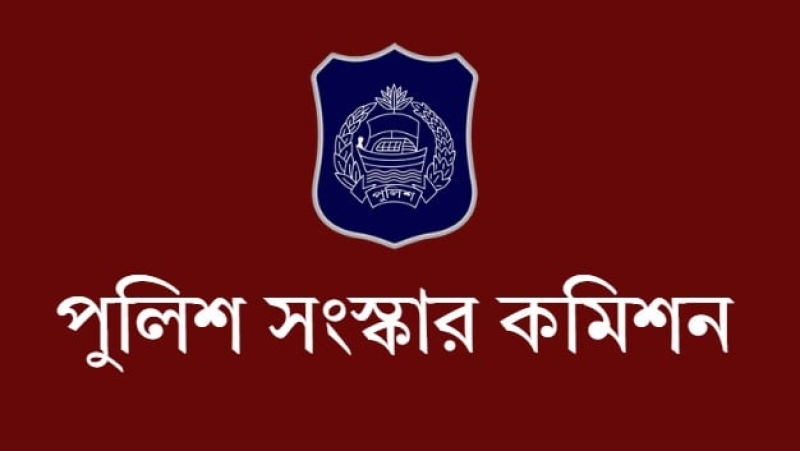- Cold wave disrupts life, livelihoods across northern Bangladesh |
- US to Exit 66 UN and Global Bodies Under New Policy Shift |
- LPG Supply Restored Nationwide After Traders End Strike |
- Stocks advance at both bourses; turnover improves |
- LCs surge for stable dollar, but settlement still sluggish |
PRC Suggests All-Party Committee to Tackle Police Corruption

The Police Reform Commission (PRC) has put forward a series of recommendations aimed at rooting out corruption and enhancing the service-oriented approach of the police force. Key suggestions include the establishment of all-party committees, the formation of a task force, and policy reforms around recruitment, transfers, promotions, and accountability measures for delays or corrupt practices.
In its report, submitted to Chief Adviser Prof. Muhammad Yunus on January 15, the PRC proposes the creation of all-party committees at the local level, such as in each police station or upazila, to act as oversight bodies. These committees would play a vital role in preventing corruption by ensuring transparent and effective policing on the ground.
The commission also recommends forming a special task force responsible for generating long-term reform strategies, drawing on the insights gained from the all-party committees. A short-term solution suggested by the PRC is the establishment of a "watchdog" committee to address immediate concerns of professional misconduct and deliberate corruption within the police force.
Another key recommendation is to prioritize transparency and integrity in the recruitment process. The PRC stresses the importance of involving officers and employees with impeccable ethical standards in recruitment procedures to maintain public trust and ensure professionalism.
The report also highlights the need for clear, transparent policies governing transfers and promotions within the police force. It calls for these policies to be made public and ensures that all stakeholders are informed of the processes involved. Additionally, any allegations of extortion or misconduct by police officers must be immediately investigated by the Superintendent of Police.
Addressing the police reward system, the PRC suggests a review of current practices, which are often seen as vulnerable to misuse. The report emphasizes the need for well-defined criteria and transparent processes to ensure rewards such as medals and allowances are given fairly and without external influence.
To ensure operational efficiency, the PRC recommends adequate budget allocations for essential activities at each police station, such as transportation, witness handling, and funeral arrangements for unclaimed bodies. Furthermore, the report stresses that any delays in receiving General Diary (GD) reports or evidence of corruption should be met with strict penalties.
The PRC also suggests providing dedicated funding for activities related to GD processing and verification, including increasing investigation budgets. Finally, the commission advises against mediation or arbitration in police stations to prevent any potential conflicts of interest or corruption during such proceedings.
These comprehensive measures aim to instill greater accountability, transparency, and service orientation within the police force, creating a more effective and trustworthy law enforcement system.

